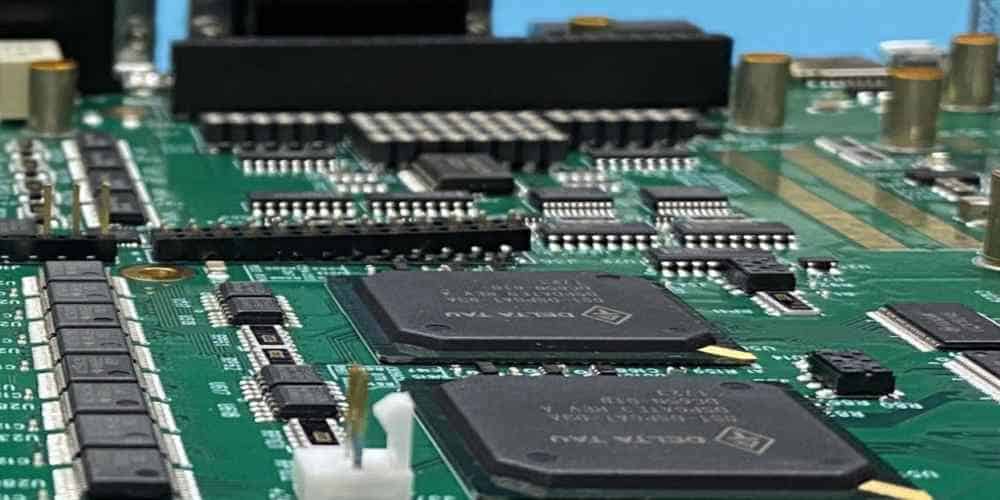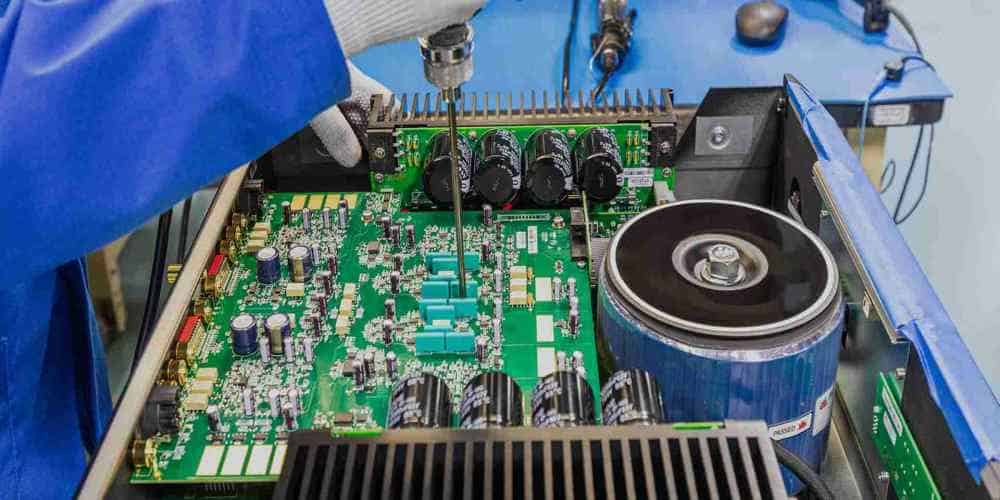Electronic hardware manufacturers play a crucial role in the technology industry. They are responsible for designing and producing electronic components that are used in a wide range of devices, from smartphones to medical equipment. These manufacturers are constantly innovating and improving their products to keep up with the rapidly changing landscape of technology.
One of the biggest challenges facing electronic hardware manufacturers is the need to balance innovation with cost-effectiveness. As technology continues to advance at a rapid pace, manufacturers must find ways to incorporate new features and capabilities into their products while still keeping prices competitive. This requires a delicate balance of research and development, manufacturing efficiency, and strategic partnerships with suppliers and customers.
Despite these challenges, electronic hardware manufacturers continue to thrive and drive innovation in the technology industry. With their cutting-edge products and dedication to quality and efficiency, they are poised to play a key role in shaping the future of technology for years to come.

Top Electronic Hardware Manufacturers
When it comes to electronic hardware, there are a few manufacturers that stand out from the rest. These companies have been in the industry for years and have established a reputation for producing high-quality products. Here are some of the top electronic hardware manufacturers:
1. Intel
Intel is one of the largest and most well-known electronic hardware manufacturers in the world. They produce a wide range of products, including microprocessors, chipsets, and motherboards. Their products are used in a variety of industries, from personal computers to data centers.
2. Samsung
Samsung is a South Korean company that produces a wide range of electronic hardware products, including smartphones, televisions, and home appliances. They are also a major player in the semiconductor industry, producing memory chips, processors, and other components.
3. Texas Instruments
Texas Instruments is a US-based company that produces a wide range of electronic hardware products, including calculators, microcontrollers, and sensors. They are also a major player in the semiconductor industry, producing a variety of analog and digital chips.
4. Broadcom
Broadcom is a US-based company that produces a wide range of electronic hardware products, including wireless chips, networking equipment, and storage devices. They are also a major player in the semiconductor industry, producing a variety of chips for different applications.
5. Qualcomm
Qualcomm is a US-based company that produces a wide range of electronic hardware products, including processors, modems, and wireless chips. They are a major player in the smartphone industry, with their products used in many popular devices.
These are just a few of the top electronic hardware manufacturers in the world. Each of these companies has established a reputation for producing high-quality products that are used in a variety of applications.
Types of Electronic Hardware

Electronic hardware is a broad category that encompasses a wide range of devices and components. Here are some of the most common types of electronic hardware:
Integrated Circuits (ICs)
Integrated circuits, also known as microchips or chips, are tiny electronic circuits that are etched onto a small piece of silicon. They can contain thousands or even millions of transistors, resistors, and capacitors, and are used in everything from computers and smartphones to cars and medical equipment.
Printed Circuit Boards (PCBs)
Printed circuit boards are thin, flat boards made of fiberglass or other materials that have conductive pathways etched onto them. They are used to connect and control electronic components, and are found in everything from televisions and radios to industrial machinery and medical devices.
Sensors
Sensors are electronic devices that detect and measure physical properties such as temperature, pressure, and light. They are used in a wide range of applications, from home security systems and environmental monitoring to industrial automation and medical diagnostics.
Power Supplies
Power supplies are electronic devices that convert AC (alternating current) power from a wall outlet into DC (direct current) power that can be used by electronic devices. They are found in everything from laptops and smartphones to industrial machinery and medical equipment.
Connectors
Connectors are devices that allow electronic components to be connected together. They come in a wide range of shapes and sizes, and are used in everything from consumer electronics to aerospace and military applications.
Displays
Displays are electronic devices that show visual information, such as text, images, or video. They are found in everything from televisions and computer monitors to digital signage and medical equipment. Common types of displays include LCD (liquid crystal display), OLED (organic light-emitting diode), and LED (light-emitting diode) displays.
Overall, electronic hardware is a diverse and constantly evolving field, with new technologies and devices being developed all the time. Understanding the different types of electronic hardware is essential for anyone working in the industry, whether you are designing, manufacturing, or repairing electronic devices.
Factors to Consider When Choosing an Electronic Hardware Manufacturer
Choosing the right electronic hardware manufacturer is critical to the success of your business. Here are some factors to consider when selecting the right manufacturer for your needs:
Quality
Quality is the most important factor when choosing an electronic hardware manufacturer. Look for a manufacturer that has a proven track record of producing high-quality products. Check their certifications and accreditations to ensure that they are following industry standards and best practices.
Cost
Cost is another important factor to consider when choosing an electronic hardware manufacturer. Look for a manufacturer that offers competitive pricing without sacrificing quality. Keep in mind that the lowest price may not always be the best value in the long run, as you may end up with a subpar product that requires frequent repairs or replacements.
Lead Time
Lead time is the amount of time it takes for a manufacturer to deliver your order. Look for a manufacturer that can meet your delivery deadlines without compromising quality. Make sure to discuss lead times with the manufacturer before placing an order to avoid any surprises.
Customer Support
Good customer support is essential when working with an electronic hardware manufacturer. Look for a manufacturer that provides excellent customer support, including timely responses to inquiries and a willingness to work with you to resolve any issues that may arise.
Capacity
Capacity refers to the manufacturer’s ability to produce the volume of products you need. Look for a manufacturer that has the capacity to meet your production needs, both now and in the future. Make sure to discuss your production needs with the manufacturer before placing an order.
Location
Finally, consider the location of the manufacturer. Look for a manufacturer that is located close to your business to reduce shipping costs and lead times. However, don’t sacrifice quality for location – it’s better to work with a manufacturer that is further away but produces higher quality products.
The Future of Electronic Hardware Manufacturing

The electronic hardware manufacturing industry has been growing rapidly in recent years, and it is expected to continue to do so in the future. With the rise of the Internet of Things (IoT), artificial intelligence (AI), and other emerging technologies, the demand for electronic hardware is expected to increase significantly.
One of the major trends in electronic hardware manufacturing is the move towards miniaturization. As technology becomes more advanced, there is a growing demand for smaller, more compact devices. This trend is expected to continue in the future, with manufacturers investing heavily in research and development to create smaller and more efficient components.
Another trend in electronic hardware manufacturing is the increasing use of automation. With the rise of Industry 4.0, manufacturers are looking for ways to automate their production processes to increase efficiency and reduce costs. This trend is expected to continue in the future, with more and more manufacturers investing in robotics and other automation technologies.
In addition, the demand for sustainable and environmentally friendly electronic hardware is also on the rise. Consumers are becoming increasingly aware of the impact that electronic devices have on the environment, and they are looking for products that are made using sustainable materials and manufacturing processes. This trend is expected to continue in the future, with manufacturers investing in new technologies and materials to create more sustainable products.
Overall, the future of electronic hardware manufacturing looks bright, with new technologies and trends driving growth and innovation in the industry. As manufacturers continue to invest in research and development, we can expect to see even more advanced and efficient electronic hardware in the years to come.

